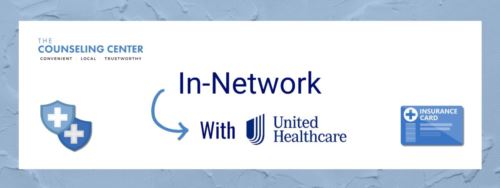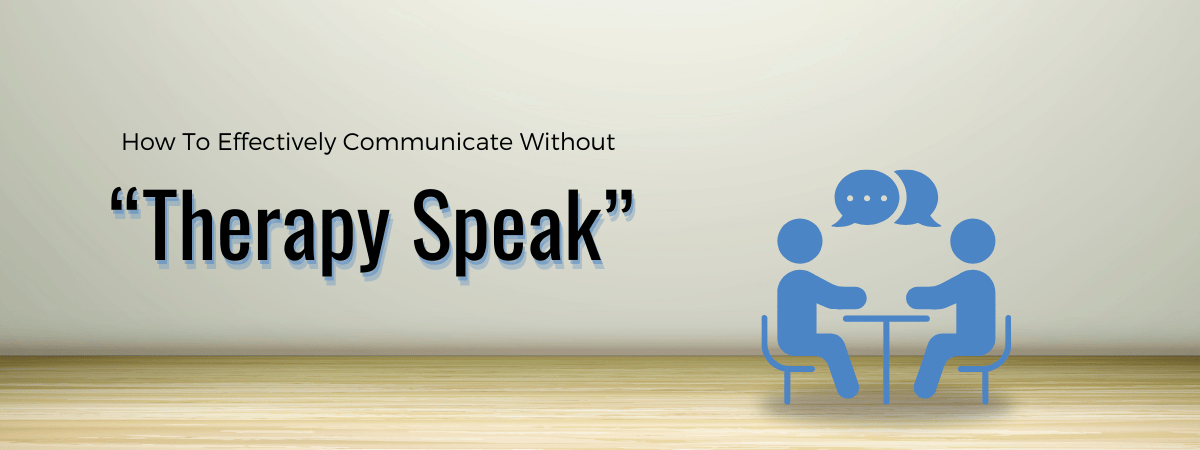

Why You Ought To Stay Away From Therapy Speak In Daily Conversations
Mental health awareness has made considerable strides in recent years, moving previously unspoken topics into the open. While this shift is commendable, it has also begun a phenomenon that can obstruct valuable discussions: "therapy speak."
This sort of dialogue is misunderstood, overused, and taken beyond its original intent by unqualified people in daily situations and on modern populist social media like Instagram, TikTok, and more. Learn more about what defines therapy speak, how it impacts people, and find tips on speaking about mental health care more productively.
What Is Therapy Speak?
Therapy speak is a reference to using psychological terms, often taken from therapy sessions, in casual discussions. Certain words and phrases have made their way out of professional clinical contexts and become mainstream in headlines, hashtags, and, sadly, heated arguments between family members.
When these terms are misconstrued in general conversation, they can turn into a way to avoid more meaningful dialogue and harmfully misinterpret complex emotions. What could be beneficial discussions often cease abruptly with lingering negative results, as those with no background or authority may misdiagnose themselves or others they care about.
Here are a few instances of therapy speak:
- “I’m setting a boundary,”
- “That’s triggering for me,”
- “Are you doing the work?”
- “Is it a safe space?”
- “Maybe you’re processing your trauma.”
While these terms can be helpful and rewarding within a professional context at a credentialed facility like The Counseling Center, they are often out of place in daily life.
Therapy Speak Can Weaken Authentic Conversation
At TCC, we promote incorporating mental health practices into regular life. Even so, we also acknowledge the potential drawbacks of adopting clinical or specialized language outside therapeutic settings. Engaging in therapy speak can dilute the actual intent of discussions, creating obstacles instead of cultivating a shared understanding. We’ve noticed people increasingly turn to therapy speak as a shield.
There may be a feeling that therapy speak can’t be questioned because it references what you may experience in a healthcare setting. Yet effective dialogue depends on active listening, mutual understanding, and empathy.
The Affect of Therapy Speak
1. Diminishing Authentic Connections
Relying on therapy speak can make conversations feel transactional or detached, eroding the personal warmth that nurtures authentic connection. It might “therapize” family discussions, converting significant heart-to-heart dialogue into what may sound like a 20-second reel produced by a therapist on TikTok.
To illustrate, exclaiming to a friend, “I really must hold space for myself right now,” can sound formal and aloof compared to merely verbalizing, “I’m feeling overwhelmed and need some time to think.”
2. Improper Use and Misunderstanding
Therapeutic phrases have specific meanings within professional contexts. Misapplying phrases like ”narcissistic” or “bipolar” not only diminishes their true significance but may also continue stigma around mental health conditions. Individuals seek to diagnose instead of lending an ear and making time for authentic conversation.
At The Counseling Center, we encourage carefully considered language that values the importance of phrases employed in clinical settings, ensuring they are not misapplied or diminished in daily interactions. We find that therapy speak typically sows confusion, with numerous terms employed to invoke morality. This language may function as a shield to guard us from guilt, judgment, or obligation.
3. Dodging Accountability
Even though concepts like self-care and boundaries are significant, therapy speak is often misemployed to deflect responsibility or eschew accountability. For example, saying, “I’m protecting my boundaries,” to justify unhealthy behavior can take away from the trust and honesty required in mutually beneficial relationships. There are always different words to justify self-serving or even antagonistic behaviors. The word “boundaries” has become particularly vexing to professional therapists.
Therapeutic terms are now utilized when people just refuse to do something. In light of all the conflicts that ensue, you may question whether your “boundary” is more important than your loving relationship.
How to Communicate Constructively Without Therapy Speak
We feel worthwhile dialogue shouldn’t rely on complex terminology. Rather, it’s about being clear, kind, and authentic. Our counselors have additional helpful tips:
1. Express Yourself From the Heart
Emphasize how you feel in lieu of depending on clinical terms when communicating emotions. To illustrate:
- Instead of: “You’re gaslighting me.”
- Try: “Whenever you say that, it makes me feel like my perspective isn’t being valued.”
2. Put An Emphasis On Understanding
Aim to listen closely instead of labeling behavior. Expressions like “Help me see where you’re coming from” foster beneficial discourse.
3. Be Aware of Your Audience
Remember that not everyone is familiar with professional terms. Choosing plain, understandable language helps get your message across more effectively.
4. Use Boundaries Thoughtfully
Boundaries are essential, but they have to be conveyed with care. Instead of: “I’m setting a boundary.” Try: “I must step back from this discussion for now so I can think more clearly.”
Therapy provides strategies, not jargon-heavy scripts. Counselors at TCC frequently evaluate how you’re applying what you’ve been taught to make sure it improves, rather than detracts from, your relationships.
How The Counseling Center Helps Foster Improved Communication
At The Counseling Center, we strive to equip people with the abilities they need to navigate their mental health journey while developing more positive relationships. Our offerings include:
- Individual Therapy: Personalized sessions to develop self-awareness and enhance emotional intelligence.
- Family and Couples Therapy: Helping partners and family members connect more beneficially and work through conflicts peacefully.
- Group Therapy: Creating a safe space for genuine communication in an encouraging atmosphere. Our professionals promote practical, real-life applications of therapeutic ideas, ensuring you can interact effectively with others without falling back on jargon.
Request Specialized Mental Health Support Today
If you’re motivated to deepen your self-awareness and improve your relationships, we’re ready to help. Learn more about our intensive outpatient and outpatient programs. If you need help right away, please contact our 24-hour hotline at 833-248-6271. Working together, we can equip you to communicate with clarity, purpose, and empathy—without sacrificing the essence of who you are.
 The Counseling Center is now In-Network with United Healthcare. Patients can receive the full spectrum of treatment services, including outpatient and inpatient programs, mental health services, and medication-assisted treatmentRead Full Article
The Counseling Center is now In-Network with United Healthcare. Patients can receive the full spectrum of treatment services, including outpatient and inpatient programs, mental health services, and medication-assisted treatmentRead Full Article Its not uncommon to have both a substance use disorder and mental illness. Fortunately, both can be managed simultaneously.Read Full Article
Its not uncommon to have both a substance use disorder and mental illness. Fortunately, both can be managed simultaneously.Read Full Article With the passing of Matthew Perry, some people are starting to ask about Ketamine and its FDA-sanctioned counterpart, Esketamine. Heres everything you should know about Ketamine and SPRAVATO.Read Full Article
With the passing of Matthew Perry, some people are starting to ask about Ketamine and its FDA-sanctioned counterpart, Esketamine. Heres everything you should know about Ketamine and SPRAVATO.Read Full Article

